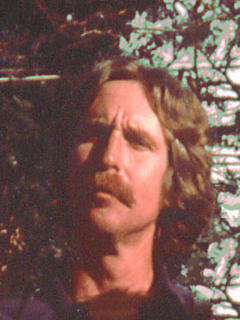By RACHEL DONADIO
Published: May 9, 2009
AMMAN, Jordan — Visiting a mosque on the second day of his closely watched first visit to the Holy Land, Pope Benedict XVI on Saturday denounced the “ideological manipulation of religion” and called for greater understanding between the Christian and Muslim faiths.
Pope Benedict XVI waves to the faithful during mass at St. George Victorious Cathedral in Amman, Jordan, on Saturday.
Speaking outside Al-Hussein bin-Talal mosque in Amman, Benedict said that because of “the burden of our common history so often marked by misunderstanding,” Christians and Muslims alike should “strive to be seen” as faithful worshipers of God.
In a speech that also touched on a central theme of his papacy and thought, the tension between faith and reason, Benedict said that “the ideological manipulation of religion, sometimes for political ends,” was often “the real catalyst for tension and division, and at times even violence in society.”
Relations between the Vatican and Muslims were strained in 2006 when, in a speech in Regensburg, Germany, Benedict quoted a Byzantine emperor who said Islam had brought things “evil and inhuman.”
After violence erupted in some parts of the Muslim world, Benedict said the remarks did not represent his own thinking.
Welcoming the pope at the mosque on Saturday, Prince Ghazi bin Muhammad bin Talal of Jordan, a cousin and the principal religious adviser of King Abdullah II, thanked Benedict for having expressed “regret” over the remarks and for clarifying that they had been a citation in an academic speech.
Islamist groups in Jordan have protested the pope’s visit, saying he has not apologized for the 2006 speech.
In a news conference on Saturday, the Vatican spokesman, the Rev. Federico Lombardi, said that the pope had not prayed inside the mosque but offered “a respectful reflection.”
He also said the pope had not been asked to remove his shoes upon entering the mosque, as is customary. Benedict had visited mosques twice before as pope.
Prince Ghazi, a Western-educated scholar who has helped foster a Vatican-Muslim dialogue called the Common Word initiative, praised Benedict for “a reign marked by the moral courage to do and speak your conscience, no matter what the vogue of the day.”
He also singled out the pope’s efforts to “refacilitate” the use of the traditional Tridentine Mass, sometimes called the Latin Mass, which has been optional since the reforms of the Second Vatican Council in the 1960s.
That rite includes a Good Friday prayer calling for the conversion of the Jews.
Benedict is expected to travel to Israel on Monday.
In Jerusalem, he is expected to visit the Western Wall, holy to Jews, as well as the religious compound in the Old City known to Muslims as the Noble Sanctuary and to Jews as the Temple Mount.
On Saturday, on a visit to Mount Nebo, the hill in Jordan from which Moses is believed to have looked out on the Promised Land, Benedict spoke of “the inseparable bond between the church and the Jewish people.”
skip to main |
skip to sidebar

Followers
Blog Archive
-
▼
2009
(53)
-
▼
May
(13)
- Obama Hails Judge as ‘Inspiring’
- Texting May Be Taking a Toll
- Thailand's countdown coup
- Schwarzenegger missed his golden opportunity to gi...
- Cheney's speech contained omissions, misstatements
- Specter defends Pelosi, questions CIA's honesty
- Iraqi militiamen frustrated that promised jobs hav...
- Defeat is sharp rebuke to governor, Legislature
- Obama Can’t Turn the Page on Bush
- Republican lawmakers back carbon tax (yes, that's ...
- Obama seeks to block release of abuse photos
- Ideological Manipulation
- Gentlemen Cows in Prime Time
-
▼
May
(13)
About Me

- Frank Maunder
- It's Worse Than I Thought! I. Santayana's Surmise: A man who forgets his past is destined to repeat it. I.1. Maunder's Corollary: A man who remembers his past is likewise destined to repeat it. I.1.1: Maunders Lemma: Not only do men not remember their past, they don't even remember the present!